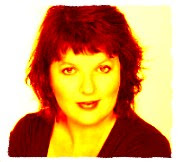
SYDNEY, Australia - Australia's largest city plunged itself into near-darkness for an hour on Saturday night when city officials, thousands of businesses and many more residents cut the lights for energy conservation.
The normally gleaming white sails of the Sydney Opera House darkened, as did the arch of the city's iconic harbor bridge, big chunks of the downtown skyline and countless homes in the city of 4 million in a gesture of concern about global warming.
"Tonight is a call to action," said Mayor Clover Moore, whose officials shut down all nonessential lights on city-owned buildings. "We all have to act to reduce out ecological footprint. We are asking people to think about what action they can take to fight global warming."
Restaurants throughout the city held candlelight-only dinners, and families gathered in public places to take part in a countdown to lights out, sending up a cheer when the lights started going out at 7:30 p.m. local time.
There was no master switch, though, and it took a few minutes for the effect to take hold as buildings went dark at slightly different times. Some floors in city skyscraper remained lit, and security and street lights, those at commercial port operations and at a sports stadium, stayed on.
While downtown was significantly darker than normal, the overall effect, as seen in television footage from overhead helicopters, was that the city's patchwork of millions of tiny lights had thinned, not disappeared.
"We were expecting a big difference straight away, but it was just a little bit," said Sonja Schollen, who took sons Harry and James to a park to watch the skyline. "It was quite sweet, actually, because the kids started chanting `turn them out, turn them out.' You can see now the city's a bit dimmer."
Children waved glo-sticks and sparklers while parents picnicked and sipped wine.
Organizers hope Saturday's event — which about 2,000 businesses and more than 60,000 individuals signed up for online — will get people to think about regularly switching off nonessential lights, powering down computers and other simple measures they say could cut Sydney's greenhouse gas emissions by 5 percent in the next year.
Research by the University of New South Wales published last week found Sydney residents are poor at energy conservation, often leaving heaters and air conditioners running in empty rooms.
Saturday's event came a week before the Intergovernmental Panel on Climate Change (IPCC), the U.N.'s influential network of 2,000 scientists, releases its latest report on climate change, which is expected to contain further dire warnings.
Leaked excerpts published in Australian media last week said average temperatures in the country could rise 6.7 degrees by 2080, making worse wildfires, floods, drought and storms. The Great Barrier Reef is already under threat from increased coral bleaching, the report says.
Australia, a nation of around 21 million people, is ranked as the world's worst greenhouse gas emitter per capita, largely because of its heavy reliance on coal-fired power stations.
Global warming has emerged this year as a mainstream political issue in Australia, and Prime Minister John Howard's government has announced initiatives such as the phased withdrawal from sale of energy-inefficient incandescent bulbs to blunt criticism of his refusal to sign the Kyoto protocol.
Supporters said Saturday's "Earth Hour" — as it was billed — showed that small individual actions can make a difference to a global problem.
"It's an hour of active, thoughtful darkness, a celebration of our awakening to climate change action," said Oscar-winner Cate Blanchett, who attended a harborside function to watch the event.
More than 250 people went to Sydney's observatory in the hope the darkened skies would let them look further into space, though light from a nearly full moon was expected to dim the glow of the stars.
Sydney is not the first place to cut the lights for conservation. In February, Paris and other parts of France dimmed the lights for five minutes in a similar gesture, which also took hold in Rome and Athens.








No comments:
Post a Comment